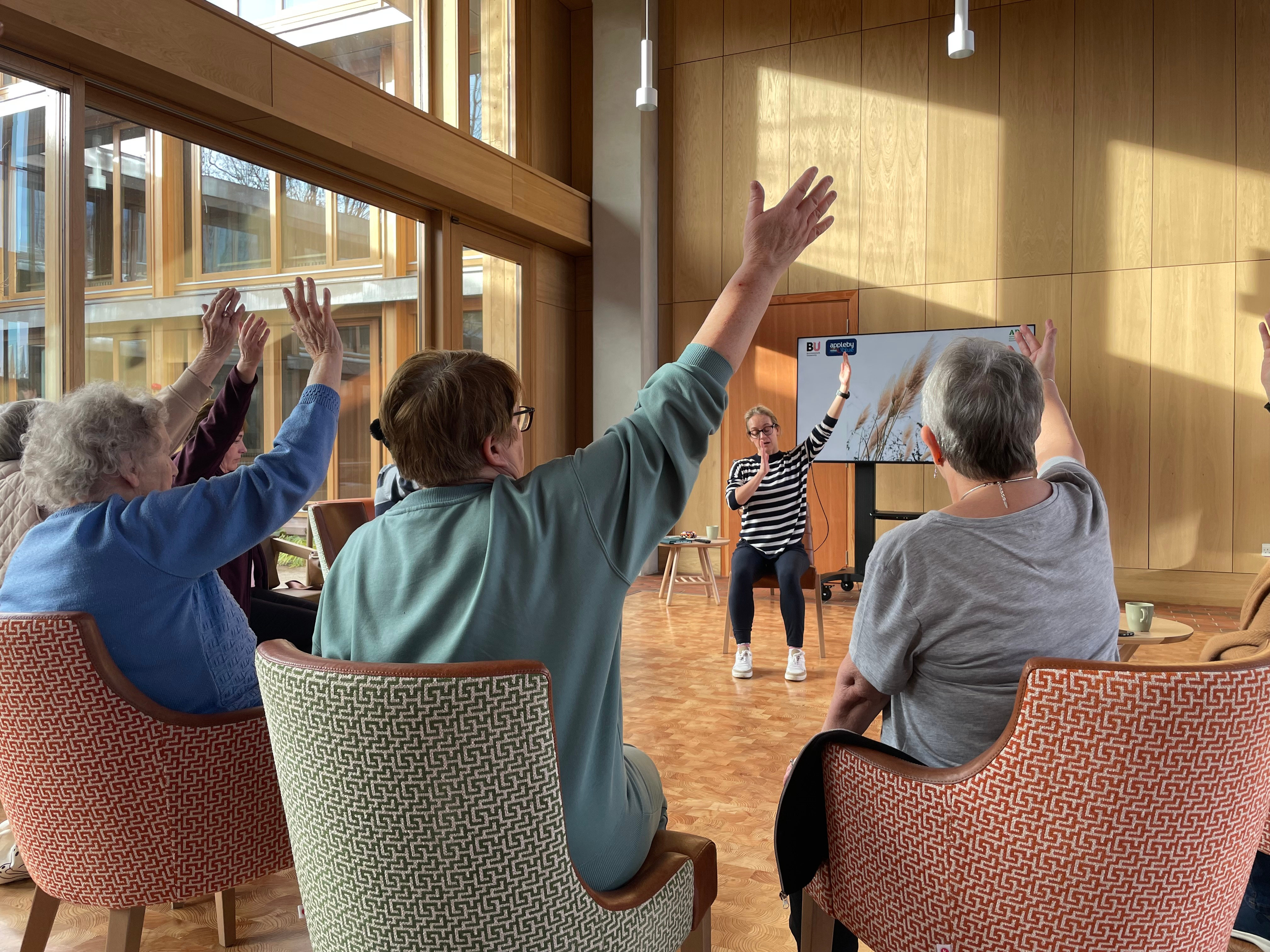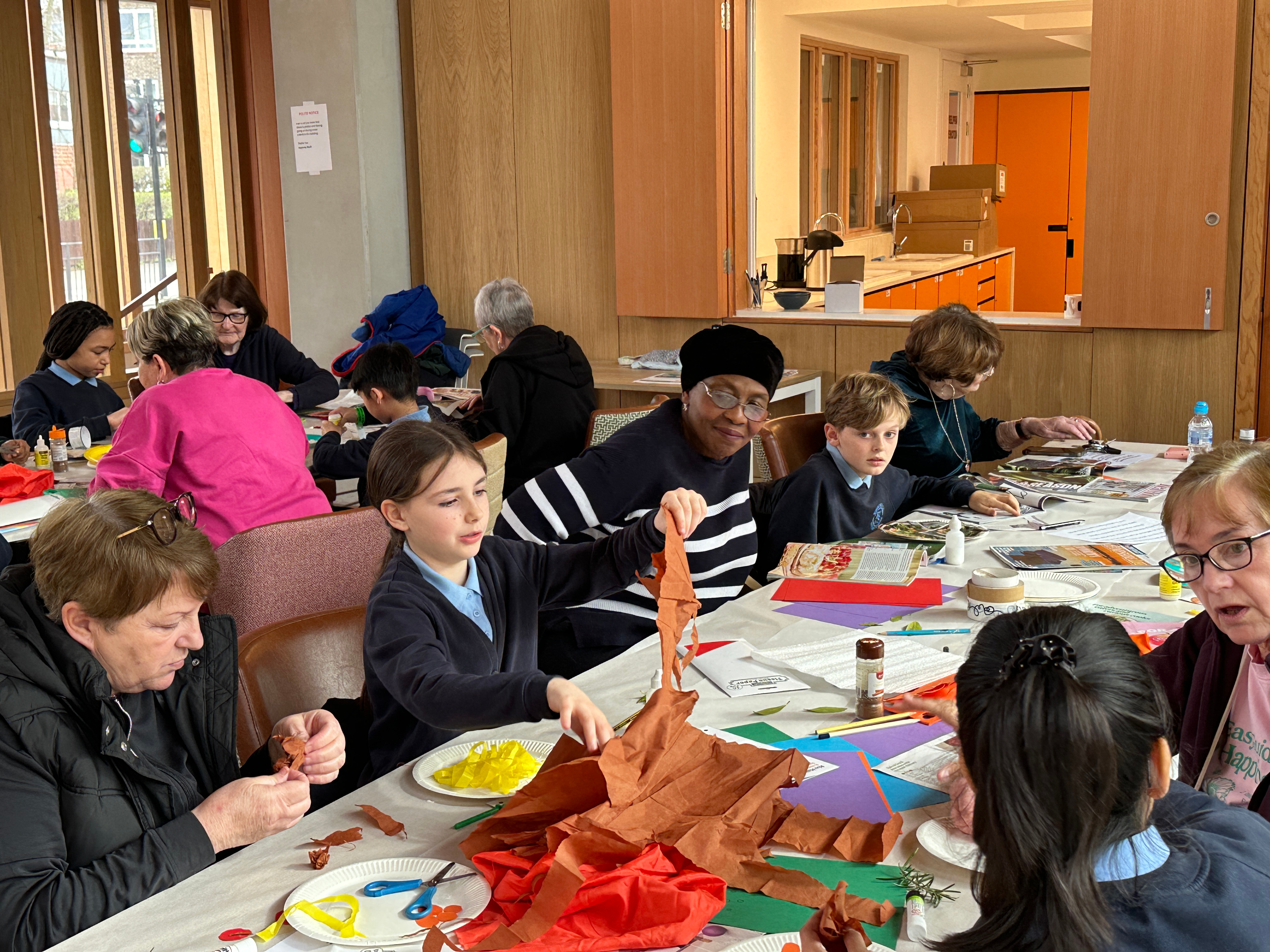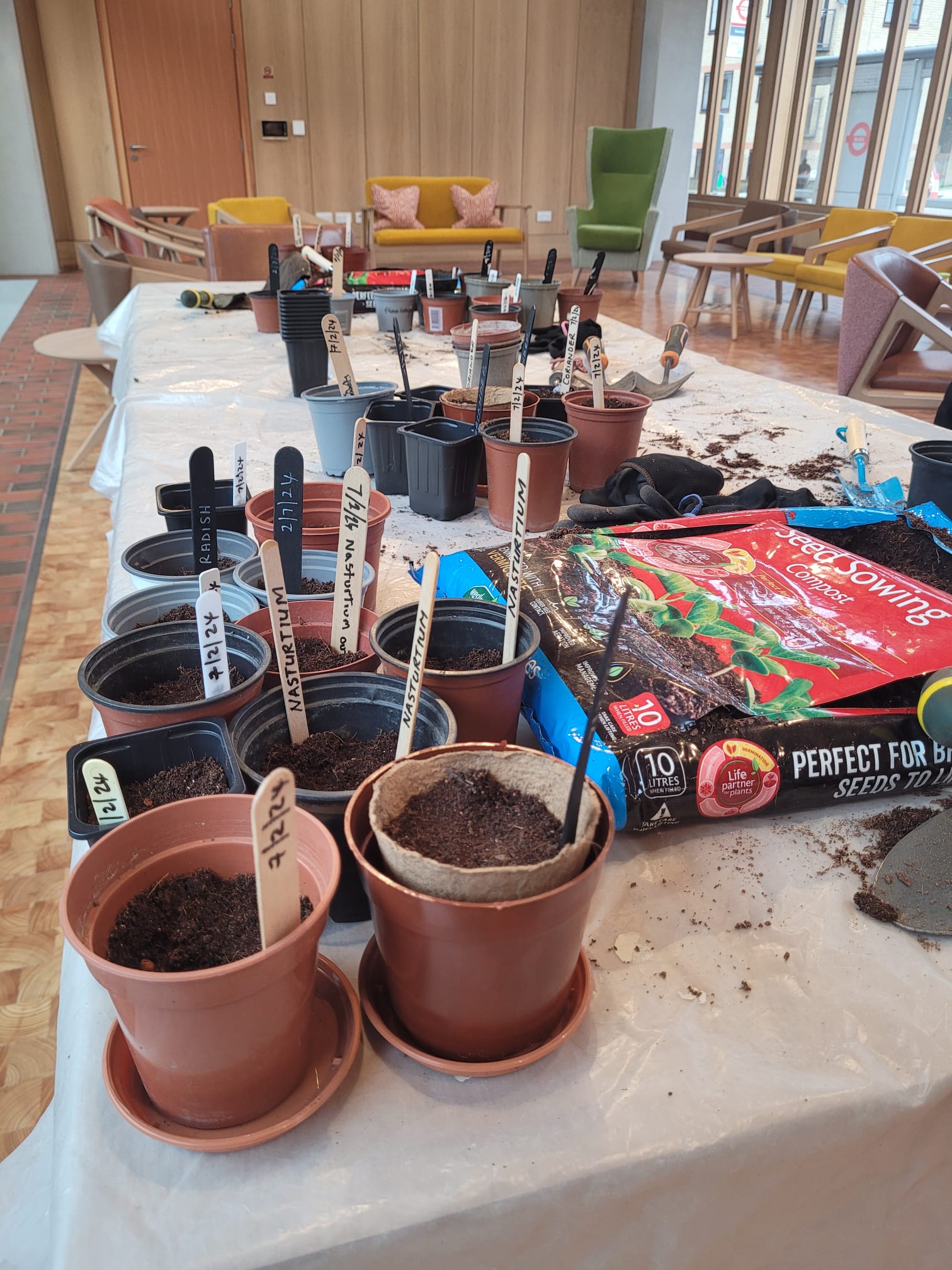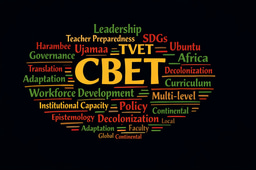Co-producing research to secure healthy ageing in older adults from socially deprived communities
Published in Healthcare & Nursing, Social Sciences, and Anatomy & Physiology

For many people around the world and in the United Kingdom today, living longer is not just a hope but an expectation. At the same time, there is a growing divide in experiences of ageing, with the poorest people living shorter lives and spending many more years in poorer health (1). Research has shown that older adults living in socially deprived circumstances may experience 20 fewer years of good health compared to older adults who are least deprived and may often live with multiple chronic diseases (multimorbidity) (2). Their health and wellbeing may be reduced by poor diet, limited physical activity, and social isolation - reducing their overall quality of life. Active participation in communal activities and maintaining meaningful engagement with the community are integral to identity, sense of purpose and contribute to ageing well (3–5). While there is a growing call for policy and solutions to ensure good health and quality of life as we grow older, there is limited evidence from research which has embedded the perspectives of older adults, involving them as co-researchers ensuring that the solutions that are developed are suitable to the needs of older adults.

What is the LEMONADE project about?
The aim of the LEMONADE (An incLusivE coMmunity fOod model for health wellbeiNg and sociAl connectedness of olDer pEople) project funded by the Dunhill Medical Trust is to explore how multigenerational socially-inclusive activities can be co-created with older adults around food growing, cooking and meal sharing to improve their health, wellbeing and social connectedness.
The project is set in a new community facility within an over-60s social housing scheme in Bermondsey, United St Saviours Charity’s Appleby Blue. Activities as part of the project include communal food growing & gardening, food preparation & cooking, meal sharing, food-related craft activities, social activities and storytelling around food. All the activities have been co-created with our older adults, inclusive, diverse, culturally tailored and often incorporate foods from diverse cultures to ensure a sense of belonging.
How will we measure the impact and effectiveness of the LEMONADE project?
The project is using research methods that are engaging, participatory and resonate with communities and working with older adults. This will ensure that older adults are prioritised and are at the forefront of the research. We are collecting evidence on the benefits of the research using a mixed-methods approach. This will enable wide reach and in-depth data to show the benefits of this type of project and how it can benefit older people and their community. We are measuring outcomes related to diet quality, nutrition, health, wellbeing, quality of life and social engagement. We will also document participant’s experiences of taking part in the project through a method called Photovoice. Photovoice is an innovative, engaging and empowering research method that enables people to have a voice and to tell their stories from their own perspectives (6). Our older adults will be provided with cameras and encouraged to take photos that describe their experiences of taking part in the project. Research has shown that using photography and research methods including Photovoice in research removes barriers, creates opportunities for reflection and personal growth and can contribute to wellbeing (7,8).

How is this research different from other research on older adults?
This research is very unique. It puts the needs of older adults at the centre of the research and their perspectives have been embedded throughout the research cycle. All activities will be co-created with our older adults. They are also involved in our advisory group to ensure that research objectives and conduct are tailored to their needs. Additionally, the researchers are living together in the community with the older adults, this facilitates building trust and developing relationships and makes the research and researchers more accessible. Finally, we are also involving some of our older adults in the research, not only in an advisory capacity but in carrying out different aspects of the research. This will ensure that our findings and recommendations reflect the voices of our older people.

What will the findings from LEMONADE mean to individuals, communities, policymakers and the wider society?
Key outputs that will be co-produced from the research include a recipe book with participants’ favourite recipes that we have used throughout, digital stories sharing participants’ experiences of different activities and more importantly a toolkit that shares the learning from this project and how this can be adapted to different settings and contexts. Securing good health in older age is at the forefront of national and global policies, as highlighted by the recent Chief Medical Officer and the State of Ageing 2023 reports. This study is not only important but necessary, as it will help address several challenges posed by ageing including social isolation, poor nutrition and health. It will contribute to new knowledge and inform policies and practices to promote quality of life and social connectedness in older adults. The impact of this research will be far-reaching, both within the UK and globally.
It will play an important role in influencing policymakers, architects and commissioners of social housing and buildings so that the benefits identified by this study can be replicated nationally. The experiences and resources from this project will highlight the value of the lived experience of older people and will be beneficial to other inner-city and multigenerational communities to adopt and implement the model within their own settings.
Link to the project website: www.bournemouth.ac.uk/lemonade
Social media
Email: lemonade@bournemouth.ac.uk
Facebook: Lemonade project
X: @BU_lemonade
Instagram: bu_lemonade
References
- Centre for Ageing Better (2023). The State of Ageing in 2023. Available at: https://ageing-better.org.uk/sites/default/files/2021-12/the-state-of-ageing-leeds.pdf
- Chief Medical Officer’s Annual Report 2023 Health in an Ageing Society. 2023; Available at: https://assets.publishing.service.gov.uk/media/65562ff2d03a8d000d07faa6/chief-medical-officers-annual-report-2023-web-accessible.pdf
- Tiernan C, Lysack C, Neufeld S, Lichtenberg P. (2013). Community engagement: An essential component of well-being in older African American adults. Int J Aging Hum Dev. :77(3):233–57.
- Krzeczkowska A, Spalding DM, McGeown WJ, Gow AJ, Carlson MC, Nicholls LAB (2021). A systematic review of the impacts of intergenerational engagement on older adults’ cognitive, social, and health outcomes. Ageing Res Rev :71:101400.
- Sixsmith J, Makita M, Menezes D, Cranwell M, Chau I, Smith M, et al. (2023). Enhancing Community Participation through Age-Friendly Ecosystems: A Rapid Realist Review. Geriatrics: 8(3):1–21.
- Wang C. & Burris MA. (1997). Photovoice: Concept, methodology and use for participatory needs assessment. Health education & behaviour: 24(3):369–87.
- Milasan L.H., (2024). ‘Taking Pictures is Like Treasure Hunting’: Exploring the Therapeutic Value of Photography as a Qualitative Research Method. Int J Qual Methods: 23:1-20.
- Haynes A. & Loblay V. (2024). Rethinking Barriers and Enablers in Qualitative Health Research: Limitations, Alternatives, and Enhancements. Qualitative Health Research: 0(0) 1–13.
Follow the Topic
-
ISRCTN: The UK’s Clinical Study Registry

A primary clinical trial registry recognised by WHO and ICMJE that accepts studies involving human subjects or populations with outcome measures assessing effects on human health and well-being, including studies in healthcare, social care, education, workplace safety and economic development.






Please sign in or register for FREE
If you are a registered user on Research Communities by Springer Nature, please sign in